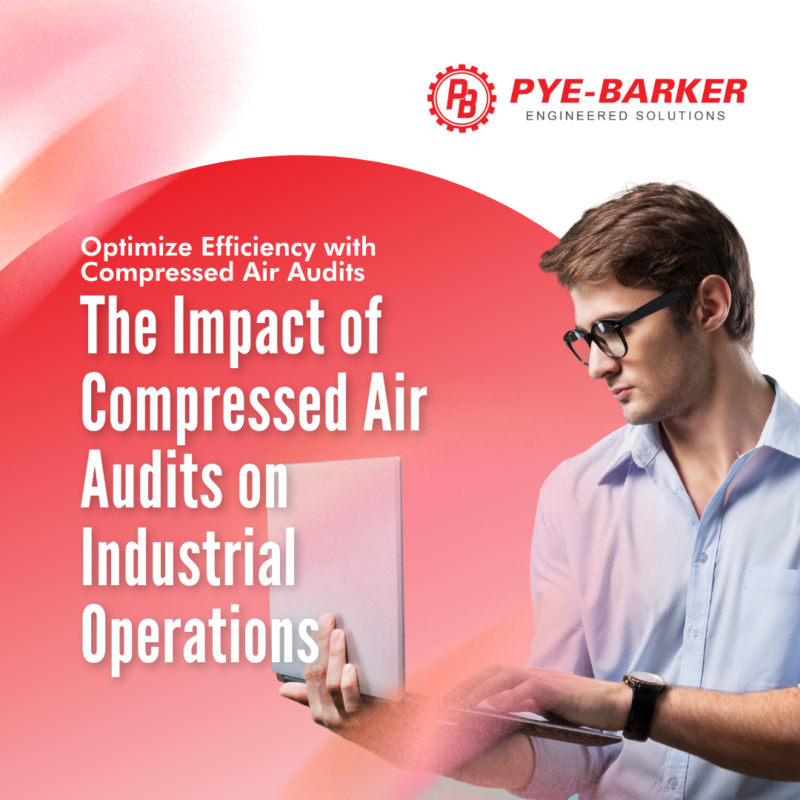
In the world of industrial machinery, where precision and efficiency are paramount, ensuring the optimal performance of equipment like pumps, compressors, blowers, and vacuums is crucial. This blog delves into the cost-saving benefits of preventing leaks in compressed air systems. For engineers and technicians in industrial companies, understanding the intricacies of compressed air audits can lead to significant financial and operational improvements.
The Hidden Costs of Air Leaks. When preparing budgets for new compressed air equipment, many businesses overlook the impact of air leaks on costs. Through advanced technology and comprehensive air audits, it's possible to uncover the true operational state of a compressed air system. This includes evaluating energy costs, ensuring proper control of the system, and identifying potential savings through leak repairs.
The Role of Air Leak Surveys. Whether through a service provider or a third-party auditor, an air leak survey can be a game-changer. Pye-Barker Engineered Solutions' field service employs cutting-edge technology, such as the UE ULTRAPROBE 3000, to precisely measure air and energy loss from leaks. The survey is a non-disruptive, one-day process, providing a quick turnaround for a comprehensive leak report. By addressing identified leaks, businesses can reduce actual air demand and subsequently cut down on energy costs.
GARDNER DENVER AirInsite Audit Programs. For a more thorough understanding of a compressed air system's performance, GARDNER DENVER AirInsite audit programs, offered through Pye-Barker Engineered Solutions' service department, provide detailed reports and graphs. These audits measure compressed air pressure, power usage, and flow over a typical week of operation. With minimal disruption to production, businesses gain insights into their system's efficiency and can make informed decisions regarding additional equipment or improvements.
Proper Sizing for Optimal Performance. Beyond identifying leaks, a detailed audit assesses whether existing piping is adequately sized for flow demand and if air receiver storage is sufficient for worst-case scenarios. Many businesses neglect these considerations when adding new equipment, potentially leading to increased energy costs. Understanding the pressure differentials in the system can guide decisions on necessary updates without compromising productivity.
Compressed Air Equipment as the Power Consumer. In the realm of industrial plants, power costs associated with compressed air equipment often go unnoticed. An air leak or system audit provides a clearer picture of current air requirements, helping businesses evaluate if additional equipment is necessary. For operations with varying air demands, the audit can also highlight the need for additional air storage or suggest the adoption of variable-speed air compressors.
Investing in compressed air audits is not just about preventing leaks; it's a strategic move to enhance efficiency and reduce operational costs. For engineers and technicians in industrial companies, understanding the nuances of these audits can lead to smarter equipment decisions and substantial savings.
Take the Next Step
Ready to optimize your compressed air system for peak performance and savings? Contact Pye-Barker Engineered Solutions today for a comprehensive air audit tailored to your industrial machinery needs. Uncover hidden leaks, enhance efficiency, and take the first step toward cost-effective operations. Your machinery deserves the best, and we're here to deliver unparalleled solutions. Contact us now to schedule your personalized compressed air audit.


